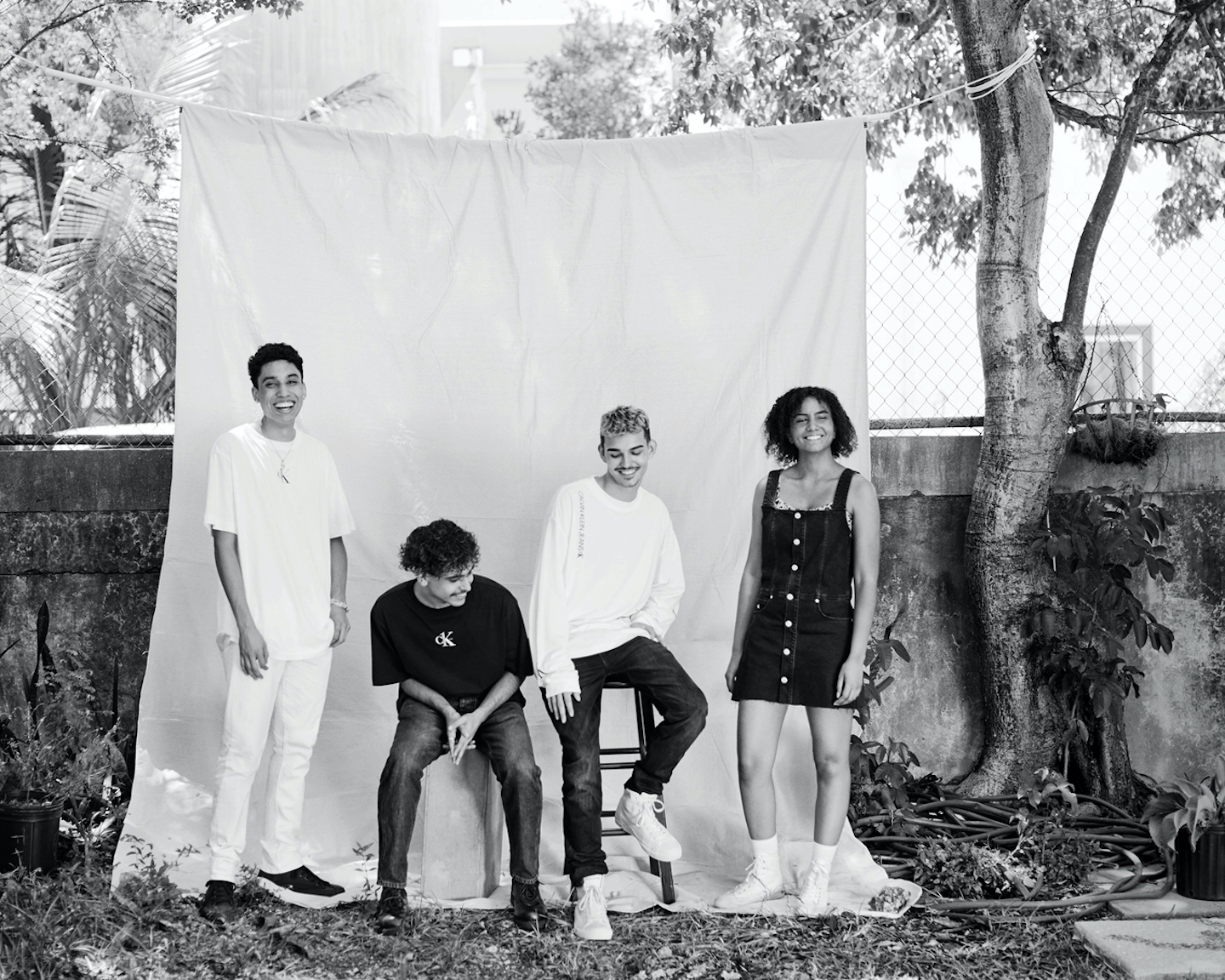Never has it been more vital for young people to have their voices heard than in the upcoming US presidential election. For many, this will be their first time at the ballot box – and they don’t plan to waste it. What’s important for young people to know before voting? This is a chance to make your vote count, not just for you but for the kids who aren’t old enough to vote yet. From issues such as immigration to LGBTQIA+ rights to the climate crisis, the values, beliefs and future of a generation of young people are at a crucial turning point. In its new CK One campaign, Calvin Klein has enlisted a diverse array of seven photographers and 11 young people across America — from Baltimore to Florida to Texas — to tell their stories against the backdrop of their own hometowns. i-D caught up with a few of them to hear their hopes for the future, and the issues they’re most passionate about ahead of 3 November.
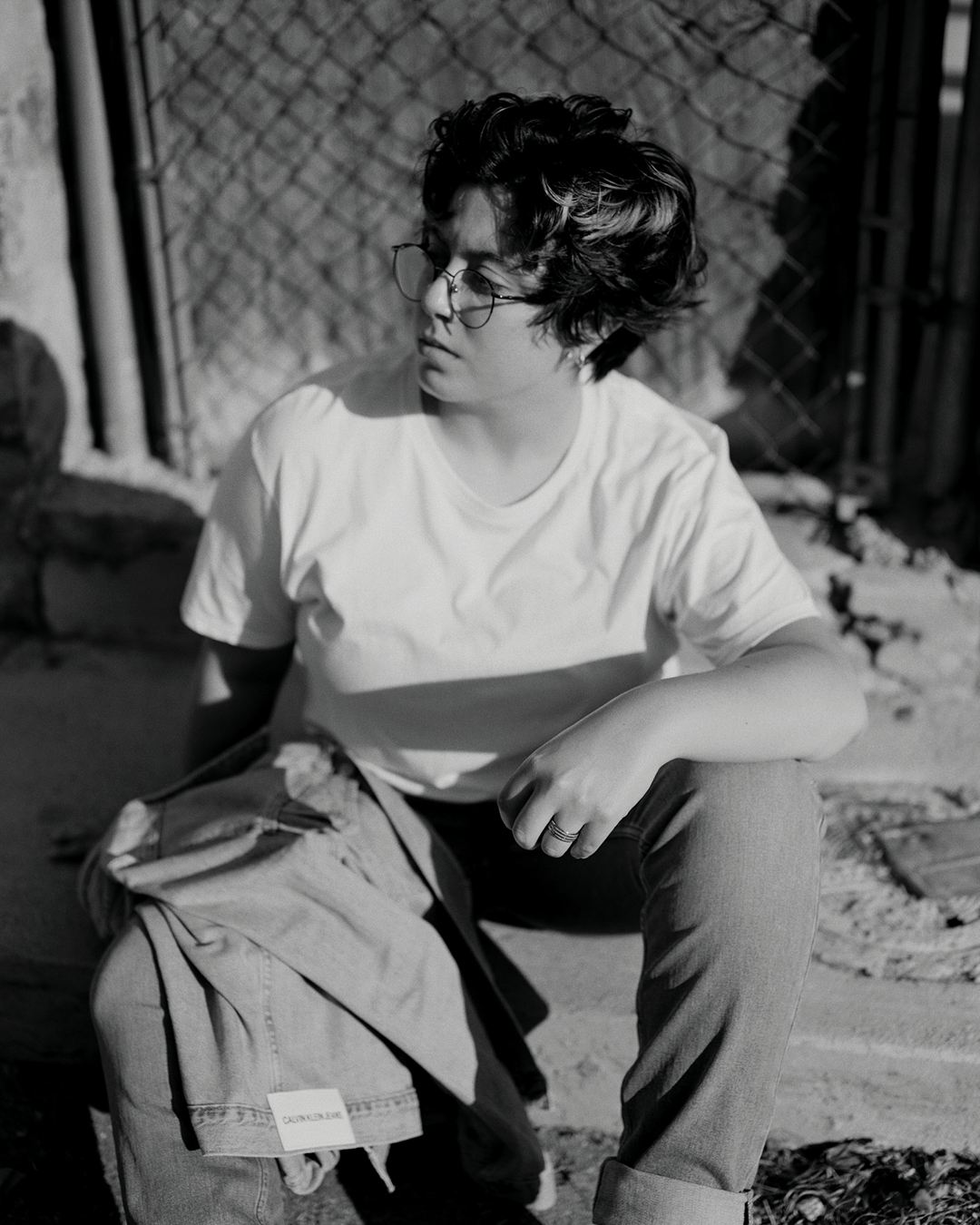
Based in El Paso, Texas on the border of the USA and Mexico, Lex Bautista has witnessed first-hand the issues surrounding immigration and xenophobia in America. Community is paramount to the 22-year-old, who cares deeply about immigration and LGBTQIA+ issues. They also sing and play the violin, and this year marks the first time they can vote.
What are the issues most important to you in the upcoming election?
There are so many issues that I’ve been fighting for. I have been fighting here on the border the immigration laws. I feel ICE should be abolished and kids shouldn’t be in cages. I see families constantly being separated. There are many more issues I care about and to name a few; I care about putting an end to police brutality, the BLM movement, protecting women’s rights, and protecting the LGBTQIA+ community’s rights.
What do you think young people should thinking about when voting?
They should be thinking about how their future may be at stake. What kind of future do you want to see? Think about your friends and family that may have been affected by these past four years. Use your voice to make the change that you want to see. Think about the fact that whatever happens now, we will be right in the middle of it years later. Vote for yourself and vote for your community.
How would you describe your community in your hometown?
I live in El Paso, Texas. It’s a beautiful city that’s right on the border. My community is almost like family. We come together for almost every protest, rally, or any other organized events. It is so easy to talk to people you don’t even know. Everyone is usually very kind and so welcoming. Being a city on the border also means we have Mexican and Hispanic culture throughout our city. We have that “mi casa es tu casa” hospitality.
How do you bring your beliefs and values into what you do?
I usually go into any situation with an open mind. I try to stay true to myself by being open and understanding, but also grounded when needed. I’ll always stand up for what I believe in. If I’m proven wrong then that’s fine too. I’m someone who’s not afraid to change and to grow.
What does representation mean to you?
It means seeing someone like yourself or someone who’s able to speak for you or your community on a platform. It brings a sense of comfort. I’d love to see more queer Hispanic people in the media or in politics.
What are you hopeful for?
I’m hopeful for a future that is all-inclusive. The future I see is full of representation, equal opportunities, and power to the people. I want to see less gentrification in cities that flourish with culture and the people in it being able to afford housing where they’re from. There is no 1 per cent in the future I hope for. The future I see is full of diversity and understanding. People with disabilities will be heard. There will be immigrants living their best lives here in America. There will be more people of colour in power. There will be no xenophobia.
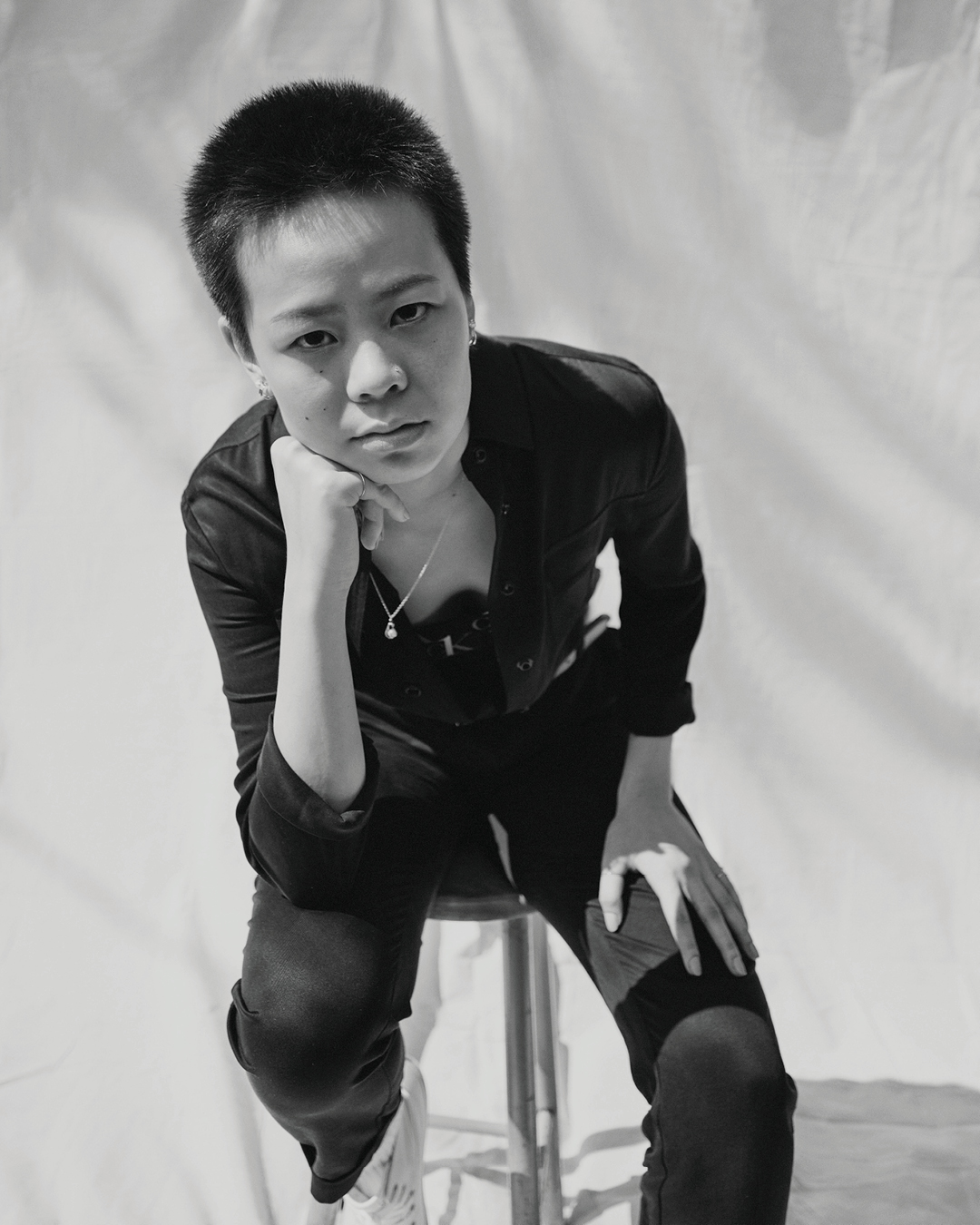
21-year-old Ting Tai grew up in Memphis, Tennessee before moving to Baltimore, where she has lived with her family for the past 13 years. As an Asian-American (her family has Malaysian-Chinese heritage) she often found herself in the minority both in her hometown and in media. Currently studying environmental science at Howard Community College, she is interested in art and photography, and passionate about the impact of the ongoing climate crisis.
What are the issues most important to you in the upcoming election?
The most glaring issue at hand is proper handling of the pandemic. We need real leadership and a plan, not an administration willing to disregard their people and spread discourse and misinformation while reserving the highest level of medical attention for only those who can afford it. Issues such as police brutality, climate change, universal healthcare, and immigration law are all some of my highest priority issues in terms of this upcoming election, in no particular order.
What do you think young people should be thinking about when voting?
Young people need to remember that this is their future that’s being decided here. We are the majority, as well as the people most impacted by the decisions made during this election. However, even though we are the majority, there are many younger individuals who can’t vote yet, or aren’t involved in politics, or choose not to vote, so vote for them too. Don’t let the generation that’s not going to be here for it for it decide your future.
How would you describe your community in your hometown?
I was born in Memphis Tennessee, and moved to a suburb of Baltimore halfway through my first-grade year. I was thrown into this new environment and had to make do, and I proceeded to do so. Over the years, I’ve somehow managed to pull together a wonderful, supportive, diverse group of friends that have become part of my family. My community is unique because it’s self-made.
How do you bring your beliefs and values into what you do?
“Your problem is separating your beliefs and values from what you do,” is what my sister tells me. I am constantly trying to bring all I have into all I do, and this includes my morals and values. I occasionally have trouble separating what I’m doing from what I believe, and this has led me through more than a few awkward conversations, and countless inflammatory arguments. I believe that you have the right to do as you please to an extent, until it infringes on the rights, health, or safety of another group or individual. Therefore, I am constantly making the effort to look back on my actions, to improve on my behaviour, and to own up to my mistakes. I choose to move forward instead of being stuck where I am.
What does representation mean to you?
Representation is extremely important to me, as someone who grew up experiencing very little of it. Growing up, I was constantly comparing myself to the people around me, priding myself for fitting in to a mould that was never meant for me. I’ve come to realise that the only thing this did was set me back and allow me to become less certain of myself. I can’t say for sure that this wouldn’t have happened if I had had the representation I needed growing up, but I can say that it would have been far easier for me to realise what I was doing.
What are you hopeful for?
I am hopeful that society will wake up and realise that global warming is not this distant, impending possibility that may or may not happen depending on whether or not we change our behaviour. We are in the middle of the worst climate change crisis in the history of mankind, and we have less than seven years before it’s irreversible, a race we are steadily losing. I am hopeful that given the opportunity, my generation won’t be the ones allowing their ignorance to fuel this. That we will figure it out.
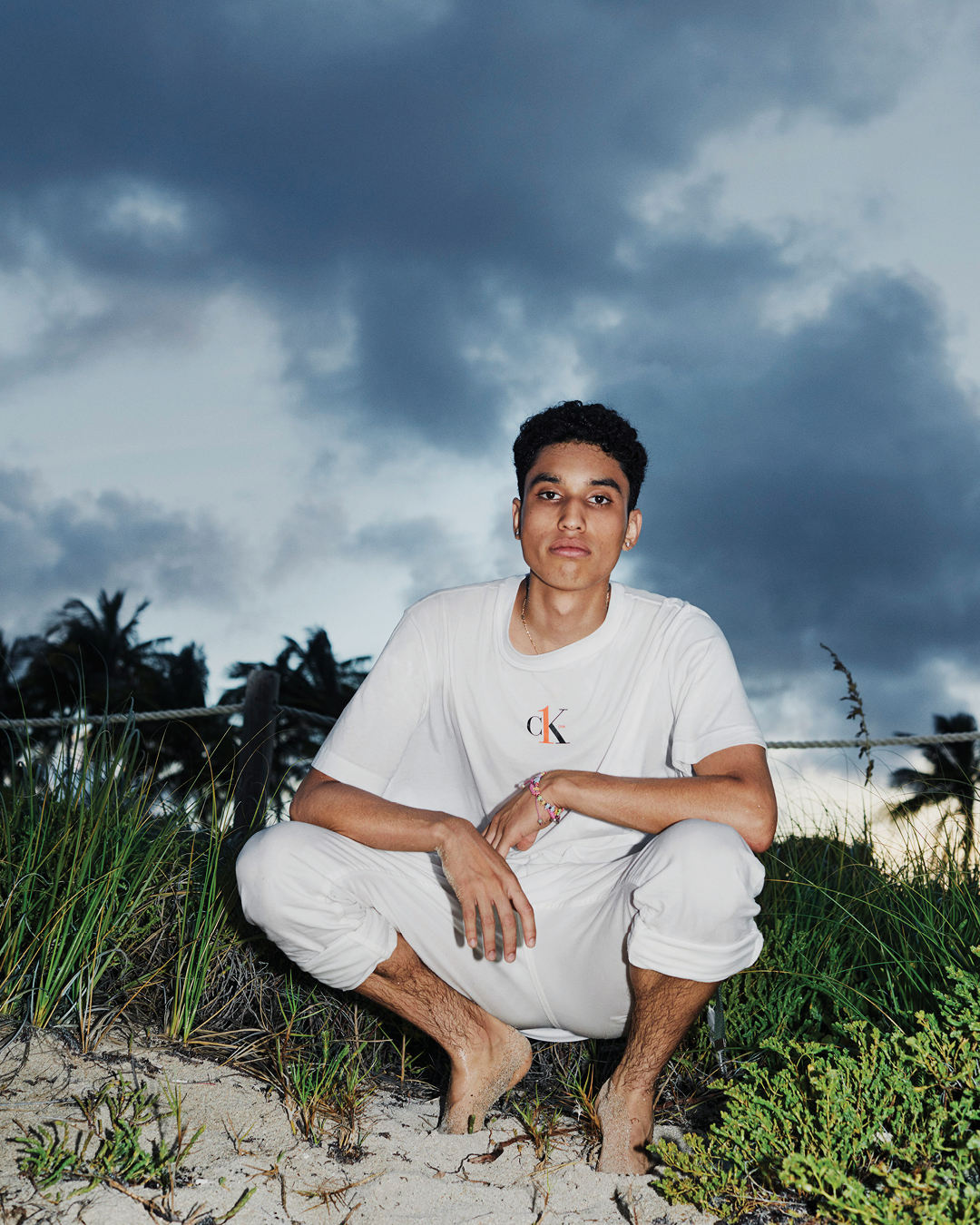
Chris Gomez was born and raised in Coral Springs, Florida. He and his friends were left devastated after the Stoneman Douglas High School shooting in 2018, in which 17 students were killed. Since then, Chris became more politically involved, protesting gun control. At 18, this year is the first in which he can vote in the upcoming election.
How would you describe your community in your hometown?
I live in Coral Springs, Florida. My community makes me think of culture and influence differently.
How do you bring your beliefs and values into what you do?
I try to mirror my beliefs and values in everything I do, as I believe everyone should.
What does representation mean to you?
Representation for me is having one’s best interest taken into account so they are heard.
What are the issues most important to you in the upcoming election?
Our health and safety is my biggest concern for this election, especially with restaurant guidelines.
What do you think young people should thinking about when voting?
Young people should definitely be thinking about not just others but themselves this coming election.
What are you hopeful for in the future?
I hope that in the future, ‘La Jura’ by Chicano Batman will be a distant memory.
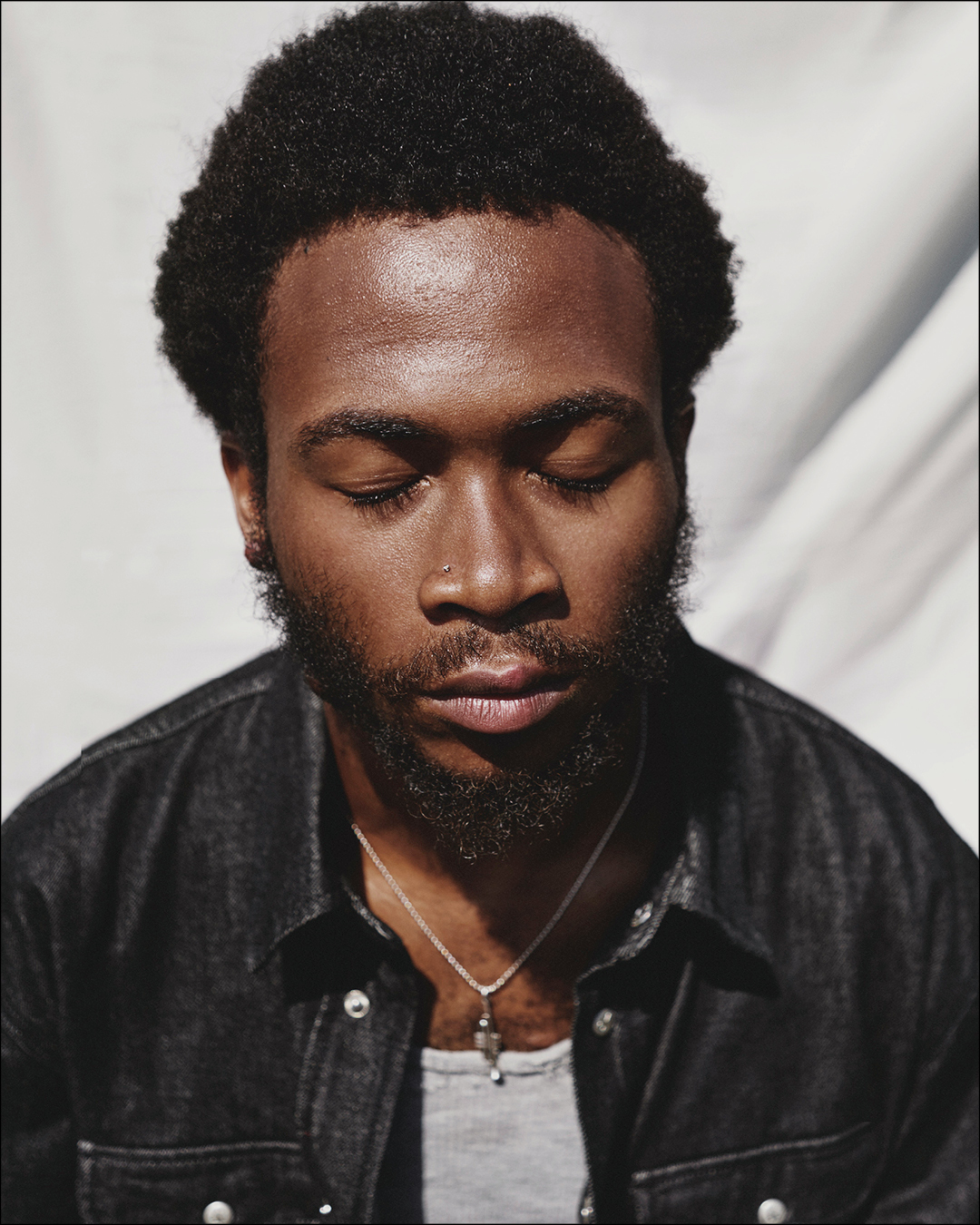
Brandon Timothy Woody started playing the trumpet at the age of eight and is now a 22-year-old musician based in East Baltimore. He spent a year at the Brubeck Institute and at the Manhattan School of Music, before dropping out and moving back home, where he has taught in schools and plans to use his vote for a generation of young people who can’t. He’s currently recording his debut album with his band UPENDO.
What are the issues most important to you in the upcoming election?
Community engagement.
What do you think young people should thinking about when voting?
Young people should be thinking of their community, how is this directly or indirectly affecting your own community. Can you reach your hands and resources, power out to change something without voting? What are you doing before, during and after voting? One who thinks their only impact is a vote has no impact at all.
How would you describe your community in your hometown?
I live in East Baltimore, Maryland. My community is beautiful, it’s filled with full family houses and so many fruitful old and new families live here. My community is a food desert, there are no grocery stores in a whole one-and-a-half-mile radius, so I always try to go to farmer’s market to cook at home or just get delivery. It’s so amazing how when I first moved to this neighbourhood, I met two of the oldest people that lived in that community for the last 40 years since it was all white. They told me so much history of the community and influenced me to tap more in to the elders that live around me and to do anything I could do to improve my community.
How do you bring your beliefs and values into what you do?
I embody all of my beliefs and values into my music and creation. My band is called UPENDO, which means “love” in Swahili. This band is a family, we all love, depend on, and support each other. Every time we have a show, I let people know that this music is protest music — it is love music, it shouldn’t always make you feel comfortable.
What are you hopeful for?
I am hopeful for myself and my friends. We are gonna bridge the gap that our elders didn’t, so that we can make it easier for the younger artists coming up to be themselves in the rawest way, but also so they know where they are coming from.
Discover more about Calvin Klein’s CK One campaign here.
